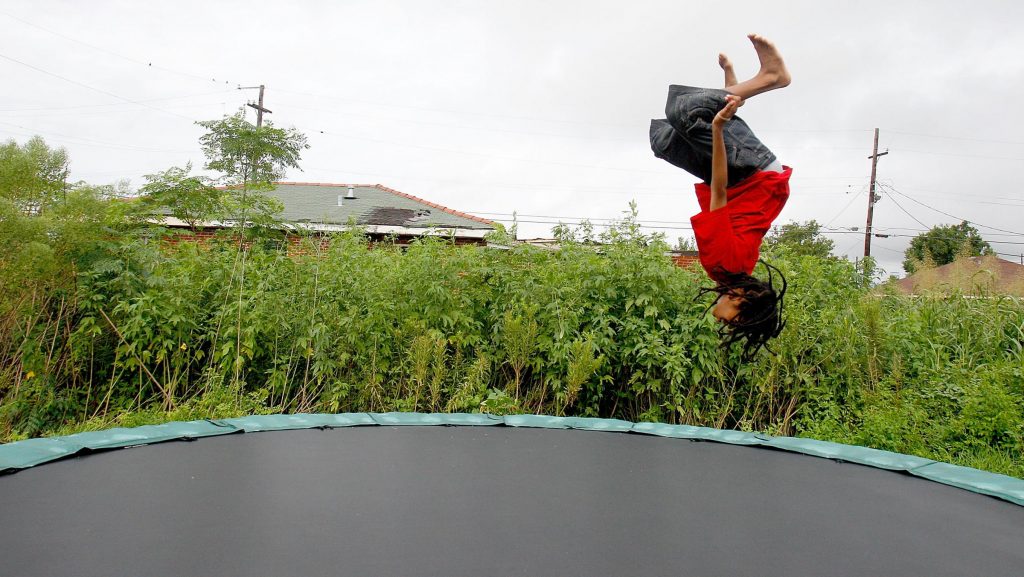
When the pirates landed, they were often disappointed by the booty. Along with Captain Jack Sparrow, they were always yelling, “Why is the rum always gone?” St. Augustine, Florida, the oldest European city established in the United States, was set up in 1513 as a military outpost to protect shipping interests in the region. As with maritime trading, locals needed this outpost because of the frequent pirates raiding ships. For the first two hundred years, the little inlet city in Florida was quite the hot spot of conflict, with pirates, Spain, and England competing for the area. Merchants were pulling gold and other New World goods out of the region and shipping them back to their different markets. But how did these different markets protect themselves against the risk? What is the history of insurance?
Risky Business
Today if we live in St. Augustine, we may check out a website or call someone to get Florida insurance quotes. However, these companies weren’t always bedrock institutions in a culture. As a concept, insurance refers to the Chinese and others who first discovered the sea as a conduit for moving goods and services. At its core, the history of insurance means that a person wants to reduce the risk. So for the Chinese and others, when they used multiple ships, they would try to spread the more valuable assets across their boats so that if a pirate or accident sunk one ship, they didn’t lose all the precious cargo.
Soon enough, people who wanted to sponsor a shipment of goods wanted some way to mitigate lost money if the ship sunk. That led to financial backers loaning the money on a voyage as long as they got a fee or premium on the loaned money. Lloyd’s of London, although not a historical insurance company, traces its roots back to a coffee house opened by Mr. Lloyd in the late 1680s. Frequented by merchants and seamen, it became the best source for shipping news, and someone often struck deals over a cup of Joe. Underwriting came directly from Lloyd’s, where the backers wrote their name under the risk information on a form Lloyd’s generated for these transactions.
Accidents and Acts of God
But what if the person in St. Augustine calls for Florida insurance quotes just had an accident? Other people took on ways of trying to help their fellow men when they didn’t have to make a shipping voyage. Sometimes it has been through governmental intervention. Other times, it has been through commerce. Ancient monarchs would receive tribute gifts from all their tribal groups in their confederation. They would register a specific cache of more than 10,000 gold pieces in the treasury from each tribe. It was important for each of these tribes to make this donation because if something went wrong in the tribe and they needed help, their representative would approach the monarch about lending aid to cover the damages. If their name were in that register, then the monarch would help.
But in more modern times, the same person in St. Augustine asking for Florida insurance quotes would have to look back to London again in the late 1600s. Due to the Great Fire of London of 1666, an enterprising merchant named Nicholas Baryon took it upon himself to ensure buildings against loss. This endeavor was England’s first fire insurance company.
More History of Insurance
Whether it was the ancient monarch or Nicholas Baryon, insurance operates to generate a large number of capital reserves to draw against in the event of a loss due to an accident. Insurance companies throughout history have developed considerable resources to help their clients in an accident. Especially now, however, they still fall under the bounds of a contract and are governed by specialized legal situations. At a base level, an act of God speaks to an impossible event that occurs, not allowing one party to fulfill their end of the bargain. For instance, if a car dealer promises to sell a customized car to a client, and a tornado rips through the area the next day, the car dealer may argue that the tornado made that impossible. In addition, a judge could legally let them out of the deal.
Insurance companies, like Floridainsurancequotes.net, make these impossible events their business on a limited basis. Fire insurance often deemed an accident, spread to other types of natural disasters like flooding and crop failure. Within their structured rules, modern companies have written policies to help protect people’s property if one of these events occurs. However, customers must purchase these specialized insurance policies outside the typical homeowner’s coverage.
Just for the Health of It
So now the St. Augustine person sniffles and calls for Florida insurance quotes? Where did that start? Chancellor Otto von Bismarck of Germany popularized plans that offered accident, different workers’ medical, and life coverage for other precursors to many governmental insurance expectations among our modern systems in Europe and the U.S.
Like many other systems, however, these first started as mutual aid societies where everyone pitched in. In 1887, some African-American workers in Iowa donated a dollar toward a fund where they all worked in a company town. Members could access the fund for medical needs. The more extensive system we know now developed when individual hospitals offered the same model by letting consumers pre-pay into a fund if they needed help. That has expanded into our current model of using a network of providers for our various health needs. So, from pirates to providers, we all use insurance for multiple reasons. Hopefully, you will find the services you need.

Owning a pool in Florida can bring endless joy and relaxation, especially in the sweltering heat of the Sunshine State. However, homeowners need to be aware of the potential impact that pool ownership can have on their homeowner’s insurance rates. Pools are considered an attractive nuisance and present additional risks, which insurers consider when determining insurance premiums. This article aims to provide an in-depth understanding of how pool ownership influences Florida homeowners’ insurance rates.
Factors Influencing Florida Homeowners Insurance Rates for Pool Owners
Several key factors come into play when assessing Florida homeowners insurance rates for those who own a pool. The pool’s size, type, and location are significant factors. Larger pools with diving boards or slides are generally considered riskier and may result in higher insurance premiums. Additionally, a fence or other safety measures surrounding the pool may reduce the risk of accidents and lower insurance rates.
Secondly, the liability associated with pool ownership is a crucial determinant of insurance rates. Pools increase the risk of injuries and potential lawsuits, as drowning and other accidents can occur. Homeowners should ensure adequate liability coverage. Moreover, insufficient coverage may lead to financial burdens in an accident or case.
Lastly, they must consider the overall risk profile of the homeowner. The claim history, credit score, and desired coverage level can influence pool owners’ insurance rates. Homeowners with previous claims or poor credit history may face higher premiums. Opting for higher coverage limits or additional endorsements to protect against pool-related risks may increase insurance costs.
Mitigating Risks: Pool Safety Measures and Florida Home Insurance Discounts
While pool ownership may lead to higher insurance rates, there are measures homeowners can take to mitigate risks and potentially reduce premiums. Safety features like pool fences, self-locking gates, and alarms can significantly enhance pool safety. These measures reduce the risk of accidents and demonstrate the homeowner’s commitment to pool safety, which may result in insurance discounts.
In addition to safety measures, homeowners should consider investing in liability insurance to protect themselves financially in the event of an accident. Umbrella policies can provide an extra layer of coverage above the liability limits of a standard homeowners insurance policy, ensuring adequate protection and peace of mind.
Furthermore, homeowners can explore options for insurance discounts tailored to pool owners. Some insurance companies offer discounts for pool owners who have completed certified pool safety courses or installed advanced safety features. By proactively implementing safety measures and seeking insurance discounts, pool owners can offset the increased insurance costs associated with pool ownership.
Understanding the Financial Implications of Pool Ownership
Owning a pool in Florida can be a delightful experience. Still, it is crucial to understand its financial implications on Florida homeowners’ insurance rates—various factors, including pool size, type, and liability, influence insurance premiums for pool owners. However, with proper safety measures and consideration of additional liability coverage, homeowners can mitigate risks and potentially reduce insurance rates. By being knowledgeable and proactive, pool owners can enjoy their pools with peace of mind, knowing they have taken steps to protect themselves and their financial well-being.

If you’re planning to buy an insurance policy, it’s always a great idea to research. There are many types of available insurance policies on the web that you might need help understanding at first glance. Applying for an insurance policy can become more challenging if you need to learn more about it.
Where To Find Business Insurance in Florida
Thankfully, many online tools can help anyone get started searching for a good insurance policy for their Florida business. You’re in luck if you’re a business owner looking for business insurance. Many online insurance tools can help you find more information about specific policies and, most importantly, their corresponding deductible rates.
One of the best-known insurance tools that customers use online is commonly known as online business insurance quotes. These tools are known as ‘tools’ because they help people find inexpensive insurance policy rates acceptable to their lifestyles and needs.
Online Has the Best Quotes
Many insurance providers, in fact, actively encourage potential consumers to get online business insurance quotes at https://floridainsurancequotes.net/business-insurance-quote/ to find the best deal on business insurance in Florida. This reality will eventually lead consumers to purchase an ideal policy directly through their website.
It’s considered simpler than purchasing insurance in person since consumers are eliminating the prospect of talking to an intermediary—or, in this case, the insurance agent.
It is Not Always Easy to Find Florida Business Insurance
When looking for Florida business insurance online, you will encounter difficulties. To start, you’ll likely discover aspects you must follow to serve your business with the insurance it needs.
Thanks to that prospect, many legitimate business insurance providers don’t offer Florida business insurance online. That doesn’t mean, however, that you can’t research business insurance through a legitimate insurance provider—you have to buy your policy in person.
Therefore, online business insurance quotes are a tool to find the best policy for your business, which will later help you purchase the policy you want. When you search for online business insurance quotes, the most common website you will find is the insurer’s actual website.
Conclusion
Many business insurance websites for Florida, like https://floridainsurancequotes.net/business-insurance-quote/, now offer free online quotes they generate after providing sufficient information. Once you get your business insurance quote, the tool eventually redirects you to a web page where you can search for local agents that offer similar rates, placing you on the road to finalizing your insurance purchase.

It would be best if you entertained the kids. You want them out of the house, away from the video games, out in the fresh air. So you think you’re doing the right thing when you buy that trampoline. But have you checked into your homeowner’s insurance to see if that will be covered? If you want Florida homeowner’s insurance for trampolines, you could get bounced right out of the market.
Insurance companies are not fans of trampolines. Injuries from trampolines are growing yearly, and insurance companies have labeled them an “attractive nuisance” with things like swimming pools. So, what are your options if you want to get a trampoline? It comes down to three choices:
No Florida Homeowners Insurance for Trampolines Coverage
For many insurance companies, this is no coverage at any cost. If you already have a homeowner’s policy, you’re canceled; end of the story. And don’t think that by just not telling them about your trampoline, you’ll sneak by. Some companies are popping in with surprise inspections and could cancel you entirely if they find a trampoline on your property, no questions asked.
If you talk with your insurance agent, they may agree to write the trampoline out of the coverage rather than canceling you altogether. This means that you will be financially responsible if anything goes wrong. Think long and hard about doing this. You would be responsible for all related medical costs if a serious accident happens.
This isn’t just about your children either. If some other child comes onto your property and gets hurt on the trampoline, sometimes even without your knowledge, you will be liable if that child’s parents sue you.
Limited Coverage
Some insurance companies may allow coverage with limits for any trampoline-related claims. Again, this could be risky if a child other than your own gets injured on your trampoline. You could get sued for medical costs exceeding the policy’s limits. Since trampoline-related injuries can often result in permanent neurological damage, the costs can be significant.
As in an umbrella policy, you might buy additional coverage to help cover higher medical claims. Typically, you can get $1 million or more to cover your liability.
Regular Coverage
You could be one of the lucky ones to find that you do indeed have Florida homeowners insurance for trampolines included in your policy. The company may agree to coverage if you take all the proper safety measures. Putting up a net, having a locked entrance, and ensuring the trampoline is adequately anchored to the ground are all things you can do to help possibly get insurance coverage. Some agents report that your rates may not increase if you take these steps to prove things are safe, but be prepared to pay more.
Conclusion on Florida Homeowners Insurance for Trampolines
If you’re shopping for Florida homeowners insurance for trampolines at https://floridainsurancequotes.net/florida-homeowners-insurance/, you must know what questions to ask. With the U.S. Product Safety Commission reports showing nearly 92,000 emergency room visits yearly due to trampoline injuries, insurance companies are becoming more reluctant to offer homeowner’s coverage. Do your homework before you decide on that trampoline to avoid costly surprises.

Buying a car is significant; a lot can go wrong with a vehicle. For this reason, choosing car insurance for Florida drivers from someone like https://floridainsurancequotes.net/florida-auto-insurance/ is particularly important. By law, every car must have liability insurance, but buying additional insurance can ensure your vehicle stays operating for years without costing you an arm and a leg.
Aside from liability insurance, which covers you in case of injury or damage to other people or property (including other vehicles) while driving the car, many other options exist. You can also purchase specific collision insurance, which protects your car if you collide with a person, object, or vehicle. And comprehensive coverage helps in various circumstances, including fires, thefts, vandalism, and natural disasters such as hail, flooding, and windstorms.
As a New Driver in Florida, Do I Need All This Car Insurance?
Of course, you don’t need all these types of insurance on all vehicles – aside from liability insurance, which is a legal requirement. Vehicles on loan or lease should have full coverage, as you don’t own the car and need to return it in good condition. However, suppose it’s a vehicle you’ve purchased outright, especially an older vehicle near the end of its life, that you don’t care about (which may be a vehicle for which the premiums would be exceptionally high). In that case, you may consider forgoing collision or comprehensive insurance.
According to https://floridainsurancequotes.net/florida-auto-insurance/, there are many other factors in determining the cost of Florida auto insurance beyond the type of insurance. Insurance companies are very good at assessing the cost and likelihood of a payout and will charge you accordingly. The cost of auto insurance in Florida for new drivers will change based on personal factors, such as age, gender, driving record, insurance history, level of education, and driving experience.
They’ll also consider the vehicle, including its make, model, age, and repair record (both for you and in general). Some cars are more likely to be stolen than others, while others are likelier to break down. Your insurance provider will also look at your behavior in the car – specific forms of insurance are required for business vehicles, and vehicles explicitly driven for pleasure or as a hobby will tend to get in more accidents. They will also consider where you live – insurance in crowded, crime-ridden urban areas tends to cost more than in quiet rural spots.
It Pays to Shop for Car Insurance for Florida Drivers
Many insurance companies offer a variety of discounts. There are often special rates for senior citizens and members of some organizations (including automotive organizations like AAA and certain unions). Many insurance companies lower rates over time as people display proven records of years with no accidents or claims. Ask about these discounts early, and factor them into your long-term insurance cost calculation.
Because of the complexity of all these factors, it’s a good idea to shop around for Florida car insurance for new drivers and look at multiple different plans. Speaking to an experienced insurance broker can help you sort out the various types of coverage available, help you calculate the final costs, and finally choose an auto insurance plan that’s right for you.





